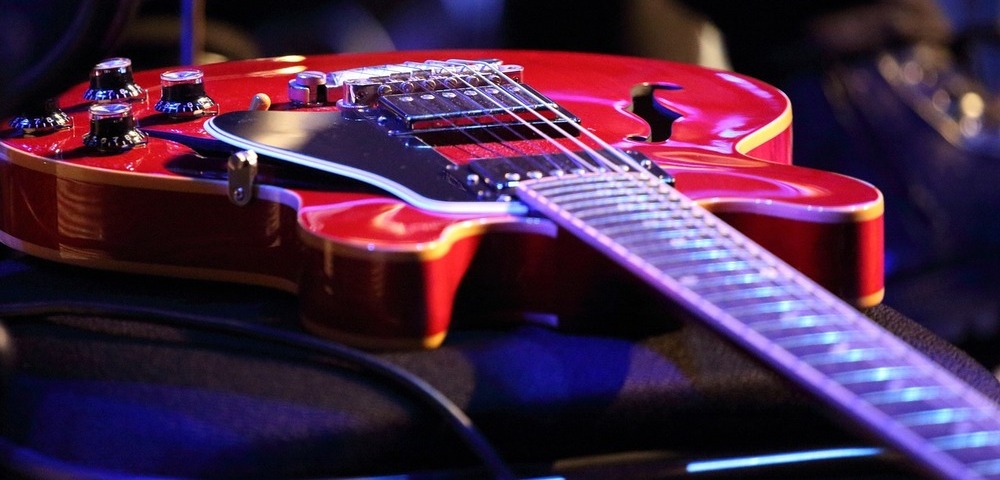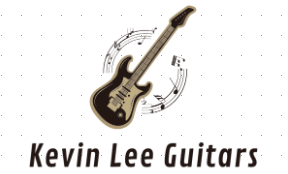Gretsch Jazz Guitars: A Guide to Finding the Perfect Gretsch for Jazz Players
Gretsch guitars have a unique appeal in the world of jazz, blending a distinctive look with a resonant sound that lends itself beautifully to a wide range of musical styles. Known for their “twangy” tones and vintage charm, Gretsch guitars are often associated with rockabilly, country, and rock. However, their warm, articulate tone and iconic design have also made them popular among jazz guitarists seeking a unique voice. Let’s explore why Gretsch guitars are suitable for jazz, which models work best for jazz tones, and what to look for when choosing a Gretsch for jazz.

1. Why Choose a Gretsch for Jazz?
Jazz guitarists traditionally gravitate towards guitars with rich, warm tones and excellent resonance, which allows for smooth, clean articulation of complex chords and melodic solos. While Gretsch guitars might not be the first brand that comes to mind for jazz, they offer several features that make them a great choice:
- Warm, Resonant Tone: Gretsch guitars, especially hollow and semi-hollow models, produce a rich, full sound that suits jazz’s tonal demands.
- Articulation and Clarity: Gretsch pickups, such as Filter’Tron humbuckers, provide a clear, articulate sound with minimal muddiness, which is essential for jazz chords and fast lines.
- Vintage Aesthetics: Gretsch guitars have a retro style that many jazz players appreciate, as they bring a classic look to any jazz performance.
- Versatile Sound: While they have a characteristic “twang” often associated with country or rockabilly, Gretsch guitars can be dialed back to achieve warm, mellow tones ideal for jazz.
2. Key Features to Look for in a Gretsch Jazz Guitar
When choosing a Gretsch guitar for jazz, consider these features:
- Hollow or Semi-Hollow Body: These body types provide the resonance and sustain that work well for jazz.
- Pickup Type: Gretsch’s Filter’Tron pickups are known for their brightness and clarity, while the Broad’Tron pickups offer a warmer, more modern tone. Either can work for jazz, but Filter’Trons tend to offer a cleaner, vintage-inspired sound.
- Neck Profile: Jazz players often prefer a comfortable neck with enough room for complex chord shapes. Most Gretsch guitars feature a medium-to-thin neck profile that suits jazz well.
- Bigsby Vibrato: While not essential for jazz, a Bigsby vibrato system can add subtle pitch modulation and warmth, though it’s usually more suited to genres like rock and country.
- Construction Quality: Look for well-constructed models with good fretwork and smooth action, especially if you plan to play intricate jazz chords and solos.
3. Top Gretsch Models for Jazz Guitarists
While Gretsch has many models that could work for jazz, here are some of the best options for jazz players:
Gretsch G5420T Electromatic Hollow Body
- Overview: The Gretsch G5420T is a full hollow-body guitar with a Bigsby tremolo, offering rich resonance and a classic look.
- Key Features:
- Body: Laminated maple, full hollow-body construction with open F-holes.
- Pickups: Black Top Filter’Tron humbuckers, which provide a clean, articulate tone with minimal hum.
- Vibrato: Bigsby B60 vibrato system for subtle pitch bending.
- Sound: The G5420T has a warm, resonant sound with excellent clarity, making it suitable for jazz standards, bebop, and even fusion. The Filter’Tron pickups produce a bright tone that’s versatile and can be softened with the tone controls for a smoother sound.
- Pros: Iconic Gretsch tone, excellent for clean, articulate jazz tones; attractive vintage look.
- Cons: Hollow-body design is prone to feedback at high volumes, so it’s best for lower-volume jazz sessions.
Gretsch G5622 Electromatic Center Block Double-Cut
- Overview: The Gretsch G5622 is a semi-hollow body with a center block, making it less prone to feedback and ideal for players who want to use some overdrive or play at higher volumes.
- Key Features:
- Body: Laminated maple with a center block that reduces feedback.
- Pickups: Super HiLo’Tron pickups, providing a clear, detailed tone with more output than Filter’Trons.
- Vibrato: Comes in Bigsby and non-Bigsby versions, giving players flexibility in choosing vibrato or not.
- Sound: The Gretsch G5622 has a balanced, versatile sound with plenty of sustain, thanks to the center block. The Super HiLo’Tron pickups offer a bright, articulate tone, perfect for jazz but with enough output for more aggressive playing styles.
- Pros: Reduced feedback, versatile tone, and comfortable double-cut design.
- Cons: Not as warm and resonant as a full hollow-body; some players might find the center block limits the guitar’s “airiness.”
Gretsch G6118T Anniversary
- Overview: A higher-end model from Gretsch’s Professional Collection, the Gretsch G6118T Anniversary is a hollow-body guitar with premium features and classic Gretsch sound.
- Key Features:
- Body: Laminated maple, full hollow body with F-holes.
- Pickups: High Sensitive Filter’Tron pickups, providing a balanced tone with clarity and warmth.
- Vibrato: Bigsby B6 vibrato for smooth pitch modulation.
- Sound: The Gretsch G6118T has a refined, full-bodied sound that’s excellent for jazz. The High Sensitive Filter’Trons provide warmth and smoothness with a bit of sparkle, great for everything from mellow chords to intricate solos.
- Pros: High-quality construction, excellent tone for jazz, classic aesthetics.
- Cons: Higher price point; feedback can be an issue at high volumes.
Gretsch G9555 New Yorker Archtop Acoustic-Electric
- Overview: A more traditional choice for jazz players, the Gretsch G9555 New Yorker is an archtop acoustic-electric guitar that delivers classic, acoustic jazz tones.
- Key Features:
- Body: Solid spruce top with laminated maple back and sides.
- Electronics: Equipped with a Fishman Sonicore pickup for natural amplification.
- Aesthetics: Classic archtop design, reminiscent of early jazz guitars.
- Sound: The Gretsch G9555 has a warm, natural tone with good projection, thanks to its solid spruce top. When amplified, it provides a balanced acoustic sound that’s ideal for jazz.
- Pros: Great for jazz purists who prefer acoustic tones; elegant vintage design.
- Cons: Limited tonal versatility when compared to electrics; not as loud or feedback-resistant as other models.
4. Why Gretsch is Unique for Jazz
The tone of Gretsch guitars is distinct compared to other popular jazz guitars. Where brands like Gibson and Epiphone offer warmer, sometimes darker sounds, Gretsch brings a bit more clarity and high-end sparkle to the table. This tonal brightness can help jazz players stand out, especially in ensemble settings, where articulation and clarity are essential. The “twang” often associated with Gretsch is subdued in jazz settings, but it still provides a unique voice that distinguishes Gretsch from other jazz guitar brands.
5. Tips for Choosing the Right Gretsch for Jazz
When selecting a Gretsch for jazz, keep these tips in mind:
- Consider Your Tone: If you want a classic jazz sound, look for hollow-body models with Filter’Tron pickups for warmth and clarity. If you play fusion or more modern jazz styles, semi-hollow or center block models with Broad’Trons might provide the versatility you need.
- Mind the Feedback: Full hollow-body Gretsch guitars can feedback at higher volumes, so if you plan to play with louder amplification, consider semi-hollow or center block models.
- Check for Playability: Jazz playing often involves complex chords and faster fingerwork, so look for models with comfortable necks and good action. Gretsch necks are generally medium in profile, but be sure to find one that feels right for your hand.
- Choose Aesthetic Preferences: Part of the appeal of a Gretsch guitar is its retro look. Choose a model that not only sounds great but also inspires you with its visual style.
6. Final Thoughts: Is a Gretsch the Right Jazz Guitar for You?
Gretsch guitars bring a unique tonal character and style to the jazz world, offering clarity, articulation, and vintage charm that can appeal to jazz guitarists. While they might not have the same traditional jazz sound as a Gibson ES-175 or an Epiphone Joe Pass Emperor, they provide a fresh, vibrant alternative for jazz musicians who want something a bit different.
Whether you’re drawn to the airy resonance of the G5420T, the feedback-resistant versatility of the G5622, or the vintage elegance of the G6118T Anniversary, there’s a Gretsch that can fit into your jazz setup. If you appreciate a guitar with distinctive style and a sound that can be molded for various jazz subgenres, a Gretsch might be just what you’re looking for.
